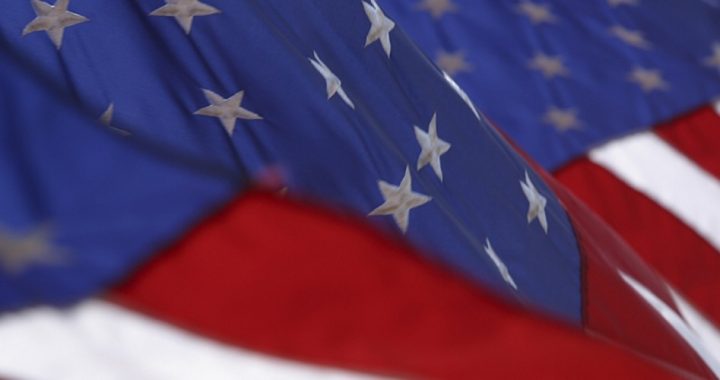
In polls taken over the past few weeks by a number of opinion survey and news organizations, the American people have sent a remarkably unified message to President Obama and the U.S. Congress: “Stay out of Ukraine!”
Despite being peppered with a constant onslaught of dramatic news video footage from Kiev and the Crimea, as well as a visit to the Obama White House by Ukrainian Prime Minister Arseny Yatseniuk, and the usual stable of policy “experts” from the Brookings Institution and the Council on Foreign Relations advocating more “robust” U.S. intervention, Americans across the political spectrum remain opposed to still another foreign venture.
A Pew Research Center poll reported on March 11 that in a national survey of over 1,000 adults, Americans, by a nearly two-to-one margin (56 percent vs. 29 percent), say it is more important for the United States to “not get too involved” in the situation with Russia and Ukraine than to “take a firm stand against Russian actions.” The breakdown along party lines, for those expressing opposition to greater involvement was Republicans, 50 percent; Democrats, 55 percent; Independents, 62 percent.
Even the 29 percent of respondents that favored a “firm stand against Russia’s actions” did not, apparently, include a military option in that stance. Only 16 percent of Republicans, five percent of Democrats, and five percent of Independents said the United States should consider military options against Russia. The breakdown of those who said we should “only consider economic/political options” was Republicans, 19 percent; Democrats, 24 percent; Independents, 18 percent. The terms “not get too involved,” “firm stand,” “military option,” and “economic/political options” are rather non-specific and leave much room for interpretation, but the overall sense, nonetheless, is that Americans are not in the least enthusiastic about having the White House wade into the turmoil in Ukraine.
A Washington Post-ABC News poll reported on March 11, “A solid 56 percent supports a coordinated effort of U.S. and European sanctions against Russia, which continues to strengthen its grip over the Crimean peninsula.” However, much of that support appears to be tepid, with the number of those actually “strongly” supporting sanctions dropping to 28 percent. According to the poll report, “Nearly as many strongly support sanctions (28 percent) as oppose them altogether (31 percent).”
Most recently, a Rasmussen Reports poll reported on March 18 that 52 percent of Americans support diplomatic action against Russia over its actions in Crimea. Again, something as vague as “diplomatic action” can mean a lot of things to different people. The wording chosen for polling questions is, of course, very important, and the types of questions asked can be used to shape an opinion poll to achieve desired objectives. A recent experiment by the British-based YouGov polling company demonstrated how the Ukraine issue could be gamed with the loaded questions.
“In the [YouGov] poll,” reported the Washington Post, “respondents were asked whether they thought the U.S. should get involved in Ukraine and what types of involvement were appropriate — sanctions, economic aid, diplomacy, military intervention, and so on. But the poll also involved an experiment.” Half of respondents were asked about Ukraine only after they answered these two questions:
• Do you think Vladimir Putin’s actions in Crimea today are similar to what Hitler did in Austria and Czechoslovakia in 1938?
• Would you consider it “appeasement” for the U.S. and other western democracies not to take strong action to defend Ukraine?
Douglas Rivers, a professor of political science at Stanford University and chief scientist at YouGov, explained the results of the experiment.
“Does context make a difference?” Rivers asked, and then answered: “Well, yes it seems to. Only 21% of those asked in the conventional way favored U.S. involvement in the Ukraine. When this question was preceded by the questions about appeasement and comparing Putin to Hitler, support for U.S. involvement rose to 29%. It didn’t change the overall result — a majority of Americans still oppose getting involved in the Ukraine even after the parallel to 1938 is mentioned — but it does make a difference of about 8%.”
Professor Rivers further noted:
It’s also interesting to see how the comparison with Hitler raises (or doesn’t raise) support for some specific actions. It does not, for example, appear to have much impact on support for military intervention. Even after mentioning Hitler, only 7% favored sending troops (compared to 5% in the normal poll) and 13% favored providing weapons (compared to 10% without the cue). The suggestion of appeasement did appear to raise support for economic sanctions and financial aid (by 7% and 8%, respectively) and slightly dampen support for negotiations.
Related articles:
Putin Annexes Crimea; Ukraine Denounces Move as “Robbery”
George Soros’ Giant Globalist Footprint in Ukraine’s Turmoil
Ukraine Behind the Headlines: Disinformation, Manipulation, Propaganda



